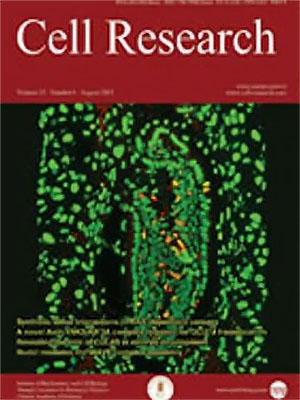Volume 11 Issue 2, June 2001: 116-124
ORIGINAL ARTICLES
Adenovirus-mediated expression of pig a(1, 3) galactosyltransferase reconstructs Gal α(1, 3) Gal epitope on the surface of human tumor cells
XING Li, Guo Hong XIA, Jian FEI, Fang HUANG, Li He GUO*
Institute of Biochemistry and Cell Biology, Shanghai Institutes for Biological Sciences, Chinese Academy of Sciences, Shanghai 200031, China
Correspondence:
Gal
a(1, 3) Gal
(gal epitope) is a carbohydrate epitope and synthesized in large amount by
a(1,
3) galactosyltransferase [
a(1, 3) GT] enzyme on the
cells of lower mammalian animals such as pigs and mice. Human has no gal epitope
due to the inactivation of
a(1, 3) GT gene but
produces a large amount of antibodies (anti-Gal) which recognize Gal
a(1,
3) Gal structures specifically. In this study, a replication-deficient
recombinant adenoviral vector Ad5sGT containing pig
a(1,
3) GT cDNA was constructed and characterized. Adenoviral vector-mediated
transfer of pig
a(1, 3) GT gene into human tumor
cells such as malignant melanoma A375, stomach cancer SGC-7901, and lung cancer
SPC-A-1 was reported for the first time. Results showed that Gal epitope did not
increase the sensitivity of human tumor cells to human complement-mediated lysis,
although human complement activation and the binding of human IgG and IgM
natural antibodies to human tumor cells were enhanced significantly after Ad5sGT
transduction. Appearance of gal epitope on the human tumor cells changed the
expression of cell surface carbohydrates reacting with Ulex europaeus I (UEA I)
lectins, Vicia villosa agglutinin (VVA), Arachis hypogaea agglutinin (PNA), and
Glycine max agglutinin (SBA) to different degrees. In addition, no effect of gal
epitope on the growth
in vitro of human tumor cells was observed in MTT
assay.
FULL TEXT | PDF
Browse 2751


